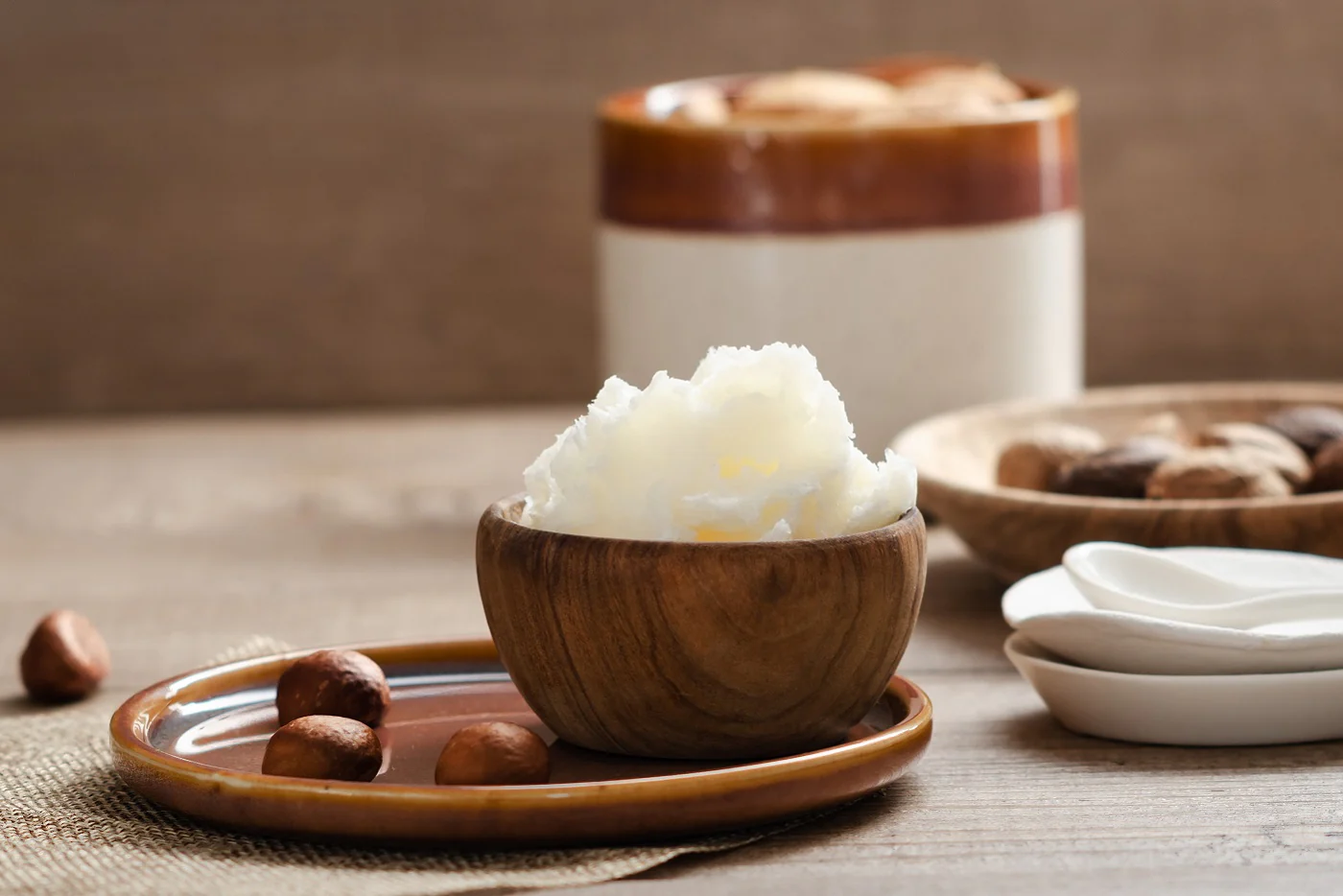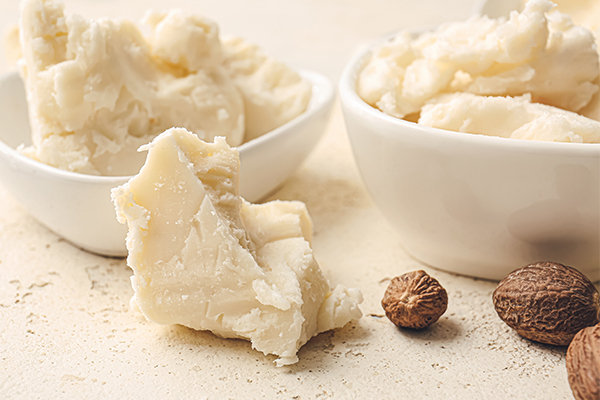Have you been struggling with dark spots on your skin? Are you looking for a natural solution to fade them away? If so, then chances are you’ve come across the use of shea butter as a potential remedy. But does it really work? As someone who has dealt with dark spots myself, I understand the frustration and desire for clear, even-toned skin. That’s why I’ve spent years researching and experimenting with different methods to get rid of dark spots. And in this article, I’ll share my expertise with you by revealing the truth about whether or not shea butter can effectively eliminate those pesky dark spots. So let’s dive into this topic together and discover if shea butter is truly the answer we’ve been searching for!
So, Does shea butter get rid of dark spots?
Shea butter can help fade dark spots on the skin. This natural ingredient is rich in vitamins A and E, which are known for their anti-inflammatory and antioxidant properties. These properties can help reduce hyperpigmentation and promote skin cell regeneration, leading to a more even complexion.
However, it’s important to note that while shea butter can be effective in reducing the appearance of dark spots, it may not completely get rid of them on its own. It works best when combined with other ingredients such as lemon juice or turmeric powder, which also have lightening properties.
Additionally, consistent use over time is key in seeing results. Regularly applying shea butter to affected areas can gradually lighten dark spots and prevent new ones from forming.
It’s also important to choose high-quality shea butter from reputable sources to ensure maximum effectiveness. Overall, while shea butter may not provide immediate results like some harsh chemical treatments do, it is a gentler and safer option for fading dark spots without damaging the skin.
Understanding Dark Spots and their Causes: A Closer Look
Dark spots, often called hyperpigmentation, can appear on the skin for various reasons. They may result from sun exposure, where ultraviolet rays stimulate melanin production in the skin. This is your body’s way of protecting itself from damage, but over time it can lead to uneven patches of darker skin. Hormonal changes during pregnancy or due to conditions like polycystic ovary syndrome can also contribute to these pesky spots. Other factors include genetics and certain medications that may cause discoloration as a side effect.
Taking care of dark spots involves understanding their origins and how they interact with our skin’s natural processes. To minimize their appearance, one might consider using products containing ingredients like vitamin C or retinoids that promote cell turnover and brighten the complexion. Regular use of sunscreen is crucial too; it not only protects against further darkening caused by UV exposure but also helps prevent new ones from forming altogether.
Overall, knowledge about what causes these spots allows us to take proactive steps towards healthier skin while embracing its unique journey through life’s changes. With persistence and self-care, many people find ways to manage or reduce them effectively.
The Properties of Shea Butter and Their Effects on the Skin
Shea butter is a wonderful natural moisturizer cherished for its rich, creamy texture and numerous skin benefits. Extracted from the nuts of the shea tree, it’s packed with vitamins A and E, which work together to nourish and protect the skin. One of its most remarkable properties is its ability to deeply hydrate without feeling greasy. When applied, it melts into your skin, providing a soothing sensation while creating a barrier that locks in moisture. This makes it ideal for those with dry or flaky skin who crave relief from irritation. Additionally, its anti-inflammatory properties can help calm conditions like eczema or dermatitis by reducing redness and swelling.
Beyond hydration, shea butter also promotes healing due to its high fatty acid content. These fatty acids assist in repairing damaged skin cells and improving elasticity—perfect for anyone wanting to maintain youthful-looking skin.
Moreover, it contains compounds that may even support collagen production over time! Many users appreciate how versatile this ingredient is; you can use it on your face, body, or even lips.
- Moisturizes
- Soothes irritation
- Aids healing
So whether you’re battling dryness or just want supple skin that glows with health, incorporating shea butter into your skincare routine might be an excellent choice!

Read also: rose water and glycerin for hair
The Role of Shea Butter in Treating Dark Spots: Facts and Misconceptions
Shea butter has gained popularity as a natural remedy for various skin concerns, including dark spots. Derived from the nuts of the shea tree, this rich substance is packed with vitamins A and E, which are known for their ability to nourish and rejuvenate the skin. Many people believe that regularly applying shea butter can help lighten dark spots over time. The anti-inflammatory properties in shea butter can soothe irritated skin, promoting a more even complexion. Additionally, its moisturizing abilities prevent dryness that could worsen the appearance of uneven skin tone.
However, it’s essential to understand some common misconceptions surrounding its effectiveness. While shea butter does hydrate and improve overall skin health, it may not be a miracle solution for stubborn dark spots caused by sun exposure or hormonal changes. Consistent use can lead to improvements in texture and hydration but might require additional treatments like serums or sunscreen for optimal results. To truly combat dark spots effectively, one should incorporate it into a broader skincare routine while managing expectations about its capabilities alone. Before trying any new product on your face or body, always consider testing it on a small area first to avoid potential irritation or allergic reactions.
Practical Tips for Using Shea Butter to Fade Dark Spots: A Guide
Shea butter is a wonderful natural remedy for fading dark spots on the skin. To start, it’s essential to choose high-quality, raw shea butter for the best results. You can apply it directly to affected areas, using gentle circular motions with your fingertips. This not only helps your skin absorb the rich nutrients but also stimulates blood circulation in that area. For optimal results, consider mixing shea butter with other beneficial oils like coconut or vitamin E oil. These combinations can enhance its effectiveness and provide added moisture.
To make this routine more effective, consistency is key! Aim for daily application after cleansing your face or body at night when your skin is ready to soak up all those nourishing elements. Remember, patience is vital; visible changes may take time as you nurture your skin back to health. You might even think about creating a soothing treatment by melting down some shea butter and adding a few drops of lemon juice—known for its brightening properties—to help manage those stubborn spots further. Incorporating these simple steps into your skincare regimen can turn an everyday task into something truly rewarding while enhancing the glow of your complexion!
You may also like: remedy massage
Conclusion: The Veracity of Claims about Shea Butter’s Effectiveness against Dark Spots
Shea butter has long been celebrated for its moisturizing properties, but people often wonder if it can truly tackle the stubborn issue of dark spots on the skin. Many individuals turn to this creamy substance, which is derived from the nuts of the shea tree in West Africa, hoping to lighten pigmentation and achieve a more even skin tone. It contains vitamins A and E, both known for their skin-healing abilities. The idea is that these nutrients can help promote cell turnover and rejuvenate the skin’s appearance. However, while anecdotal evidence abounds regarding shea butter’s effectiveness against dark spots, scientific research on this specific benefit remains somewhat limited.
When considering whether shea butter truly works to diminish dark spots, it’s important to look at how it interacts with our skin. Shea butter possesses anti-inflammatory properties that may soothe irritation or redness associated with uneven pigmentation. Additionally, its emollient nature helps create a barrier that locks in moisture—this hydration can make your complexion appear healthier overall. Yet many experts suggest pairing shea butter with other targeted treatments like vitamin C or retinol for enhanced results since they are specifically formulated to combat hyperpigmentation effectively. So while shea butter might be beneficial as part of a skincare routine aimed at improving overall texture and hydration, relying solely on it for dark spot reduction may not yield significant change without complementary products.�
